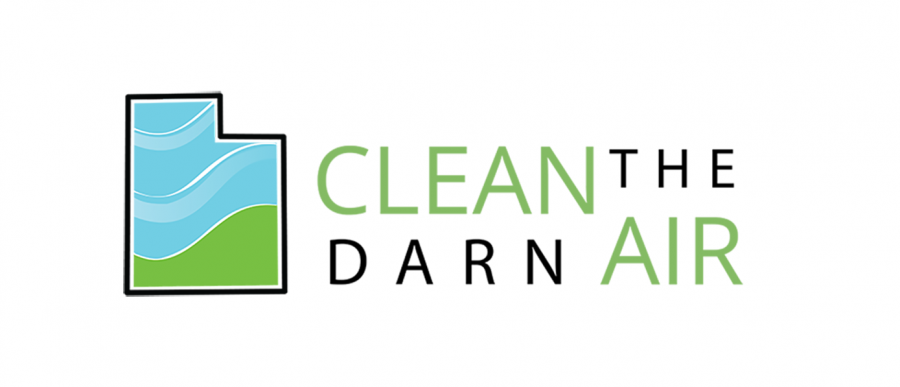‘If You Breathe in Utah, Then You Should Care About Clean Air’
August 20, 2019
The clean air carbon tax initiative by the name “Clean the Darn Air” might appear on the ballot this upcoming year.
Spearheaded by professional economist Yoram Bauman and co-written by two University of Utah professors and graduate students, the policy focuses on improving the air quality of the state while taxing carbon usage. The policy would include $100 million in funds a year to improve local air quality, with $50 million of the annual budget being allocated for rural economic development. The policy also ensures to counteract the new tax by making tax changes, such as eliminating the state’s sales tax on grocery products.
“Everyone will pay a little more for gasoline and electricity, but a little less for grocery store food because of the elimination of the state sales tax,” Bauman explained. “Plus, we’ll all benefit from less air pollution.”
Improving local air quality is the main purpose of this ballot measure. Through the taxation of fossil fuels, the taxed usage of carbon would, as School of Biological Sciences professor David Carrier said, “incentivize conservation” and “incentivize new ideas to reduce the amount of pollution we are putting into the atmosphere.”
Although this policy may seem ideal and needed within the state of Utah, for the measure to qualify for the 2020 ballot they must collect 116,000 signatures in support of it by mid-February.
Third-year Ph.D. student Kelly Kerr, studying biology, said of the importance of U students’ involvement, “If this initiative passes, it will be the first-ever tax of its kind in our nation. How cool would it be for Utah to be a leader in bringing about such pivotal change? This initiative will also directly go toward improving the air quality in Salt Lake City and other places around the state, something we all can agree is important for our health. Students should get involved to help us bring about these changes.”
Utah may politically seem like the last state to pass a carbon tax. However, scientists have proven time and time again the absolute necessity of changing the ways we interact with the Earth and the resources we choose to so heavily use.
Carrier said of this need for change, “The carbon tax initiative should matter to students at the U because it gives us an opportunity to move the whole country forward. Utah is a fiscally conservative state that is heavily invested in fossil fuels … but it is also a state which many people are well-educated about the health hazards of our polluted air. … If voters of Utah pass this measure in 2020, the state that claims coal as its state rock will be leading the nation in the fight against air pollution and climate change.”
If history has proven anything, it is that students have a greater influence than they often believe. U students’ involvement in this initiative has already gotten it so far, and with the help of more it might just make it to the 2020 ballot.
For students who want to be involved in the project, “Clean the Darn Air” wants to recruit 15-20 students to gather signatures, either on a paid basis or as volunteers. Visit their website or reach out to their signature-gathering team at [email protected].








